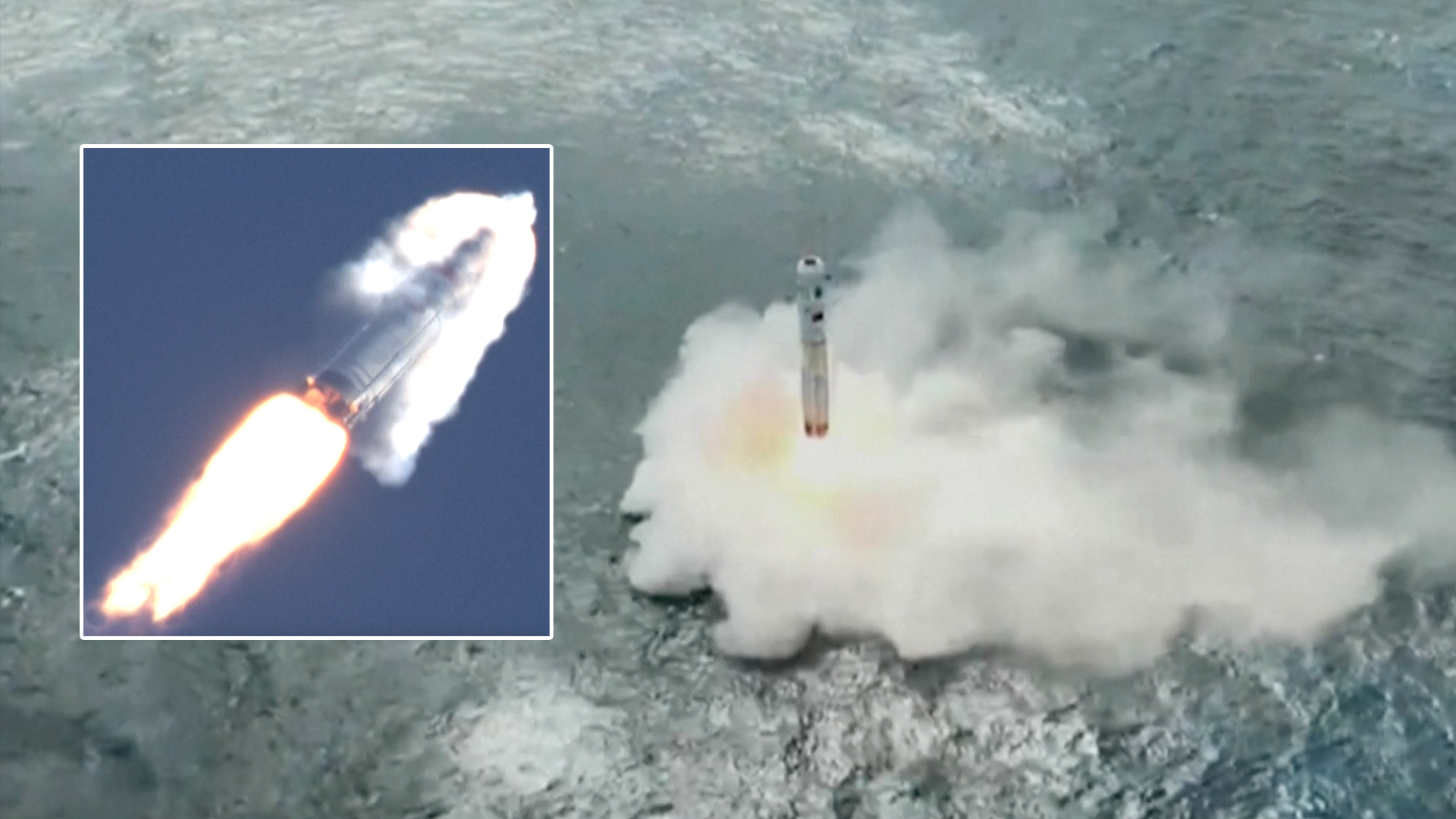Commentary: The Value of Human Spaceflight
Breaking space news, the latest updates on rocket launches, skywatching events and more!
You are now subscribed
Your newsletter sign-up was successful
Want to add more newsletters?

Delivered daily
Daily Newsletter
Breaking space news, the latest updates on rocket launches, skywatching events and more!

Once a month
Watch This Space
Sign up to our monthly entertainment newsletter to keep up with all our coverage of the latest sci-fi and space movies, tv shows, games and books.

Once a week
Night Sky This Week
Discover this week's must-see night sky events, moon phases, and stunning astrophotos. Sign up for our skywatching newsletter and explore the universe with us!

Twice a month
Strange New Words
Space.com's Sci-Fi Reader's Club. Read a sci-fi short story every month and join a virtual community of fellow science fiction fans!
Mr. StevenWeinberg has long been a vocal critic of NASA's manned spaceflight program,recently questioning the scientific usefulness of the International SpaceStation in particular, and asserting that the entire manned spaceflight programhas produced nothing of scientific value.
TheNational Space Society, composed of members who promote mankind's future ofliving and working in space, strongly supports NASA's manned spaceflightprogram, and disagrees with both the spirit and substance of hiscomments.
For a firstresponse, we turn to another renowned physicist, Dr. Stephen Hawking, who hasurged the human race to "spread out into space for the survival of thespecies." Hawking states the increasing risk of being wiped out by adisaster, such as sudden global warming, nuclear war, or some other unknowndanger as the primary reasons to diversify humanity's future beyond earth.
NASA hasnumerous examples of "spinoffs" from the space program, such as kidney dialysismachines, fetal heart monitors, programmable heart pacemakers, to name just afew that help Americans every day. Additionally, the International SpaceStation operations enable NASA to learn valuable scientific information aboutthe long term effect of spaceflight on the human body, and how best to helphumans adapt themselves for long trips, either in interplanetary space, orenroute to planets such as Mars.
While theseare all important, they don't compare to the effect these achievements have onthe human spirit. Many of us still remember the first time we saw Earth fromthe Moon's orbit, when the astronauts of Apollo 8 filmed it on ChristmasEve, in 1968. Many argue this global awareness started the conservationmovement, which might turn out to be the space program's greatest spinoff, andmay save the earth's climate in the long run. Many of us were inspired when wesaw the astronauts walk on the Moon, and realized that if mankind could dothat, we could do almost anything. The achievements of NASA's unmannedspacecraft are phenomenal, and deserving of acclaim, but they don't liftpeople's spirits to these heights.
Weinbergshould understand that many citizens don't understand the benefits oftheoretical physics to their own lives, and question the utility of thenation's investment in such work. That is an alternate explanation to why theSuperconducting Super Collider was de-funded: Congress was not convinced ofthe utility of spending $12 billion on the project. Here is where we canobserve a certain parallel with spaceflight: Both spaceflight and particle physicsare basic investments in the future.
As thePresident stated during his Vision for SpaceExploration speech, "The cause of exploration and discovery is not anoption we choose; it is a desire written in the human heart." The NationalSpace Society members support living and working in space, and the hundreds ofpeople who have already bought their own suborbital spaceflight tickets arefurther proof that this is a vision that is spreading. For all the good NASA'smanned spaceflight program has brought us, at the meager budget levels they'reprovided, we should be thanking and praising them for their dedicatedperseverance.
Breaking space news, the latest updates on rocket launches, skywatching events and more!
It is notpossible to predict all of the benefits that either the human space program orparticle physics research will do for our country, but that does not mean thatthe searches are not worthy. It is important for us to pursue, and solve, thedeepest questions of the universe, just as it is important for us to exploreour solar system and eventually live beyond the confines of our home planet. Our descendents will thank us for both pursuits.
- Top 10 Revelations of the Space Age
- IMAGES: Returning to the Moon with Orion and Ares
- The Top 10 Views of Earth From Space
GeorgeWhitesides is the executive director of the National Space Society.
NOTE: Theviews of this article are the author's and do not reflect the policies of theNational Space Society.
Visit SPACE.com/Ad AstraOnline for more news, views and scientific inquiry from the National SpaceSociety.
